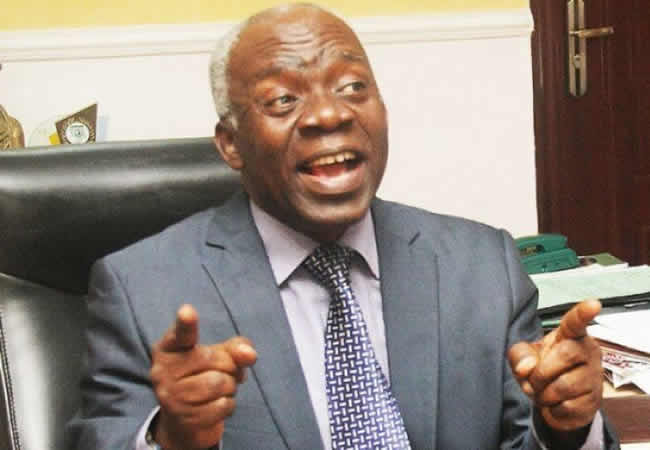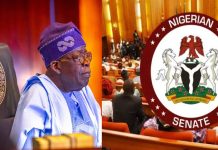

Human Rights lawyer and Senior Advocate of Nigeria, Femi Falana, on Tuesday, said the Federal High Court and the National Industrial Court have no jurisdiction to determine chieftaincy matters.
Falana, in a statement he personally signed, which was obtained by our correspondent in Abuja, accused both courts of separately conferring, “jurisdiction on themselves to determine chieftaincy matters.”
Falana described both decisions as, “highly erroneous” as they cannot be justified under sections 251 and 254(C) of the Constitution. Adding that both courts conveniently overruled the judgments of the Supreme Court and the Court of Appeal on the subject matter.
He said, “The intervention of the Federal High Court in the dispute arising from the deposition of Emir Ado Bayero & Co. as well as the restoration of Emir Sanusi Lamido Sanusi is a brazen repudiation of the decision of the Supreme Court in the celebrated case of Tukur v Government of Gongola State (1987) 4 NWLR (117) 517 where it was held that “The question raised in this claim is not a fundamental right question.
“As in the first prayer, the right to be Emir is not guaranteed by the Fundamental Rights provisions of the Constitution and the Federal High Court has no jurisdiction whatever in the matter. The Court of Appeal was, therefore, not in error of law to hold that the Federal High Court has no jurisdiction to grant the two reliefs.
“Since the apex court has said that the right to be an Emir is not a fundamental right under chapter four of the Constitution, the Federal High Court sitting in Kano ought to have declined jurisdiction to continue to entertain the dispute over the chieftaincy matter in Kano. In any case, the allegation of infringement of the fundamental rights of the Applicants is an ancillary claim to the substantive reliefs emanating from the deposition and reinstatement of the embattled emirs.”
In FCMB Plc v Nyama (2014) LPELR-23973 AT 19-20, the Court of Appeal held that: “Now it is settled that where an application is made under the fundamental Right (Enforcement Procedure) Rules, a condition precedent to the exercise of the court’s jurisdiction is that the enforcement of fundamental rights of the securing of enforcement thereof should be the main claim and not the accessory claim. Where the main or principal claim is not the enforcement of fundament right, the jurisdiction of the court cannot be properly exercised under Fundamental Rights (Enforcement Procedure) Rules.”
A Federal High Court in Kano last week ruled that it has jurisdiction to hear the human rights violation case filed by the dethroned Emir of Kano, Aminu Ado Bayero, and senior councillor, Aminu Dan’agundi, following the reinstatement of Emir Muhammad Sanusi II.
The court issued an ex-parte order preventing Governor Abba Yusuf of Kano from reinstating Sanusi until a substantive suit against the reinstatement is resolved.
The order also opposed the abolishment of four emirates—Bichi, Gaya, Karaye, and Rano—under a bill previously passed by the state House of Assembly.
Ending his submission, Falana said, “I submit, with profound respect, that section 254(C)(1) of the Constitution of the Federal Republic of Nigeria 1999 as amended has not conferred jurisdiction on the National Industrial Court to hear and determine chieftaincy matters.
“However, a traditional ruler who was deposed by a state governor without fair hearing is not without a legal redress.”
Join Television Nigerian Whatsapp Now
Join Television Nigerian Facebook Now
Join Television Nigerian Twitter Now
Join Television Nigerian YouTUbe Now





